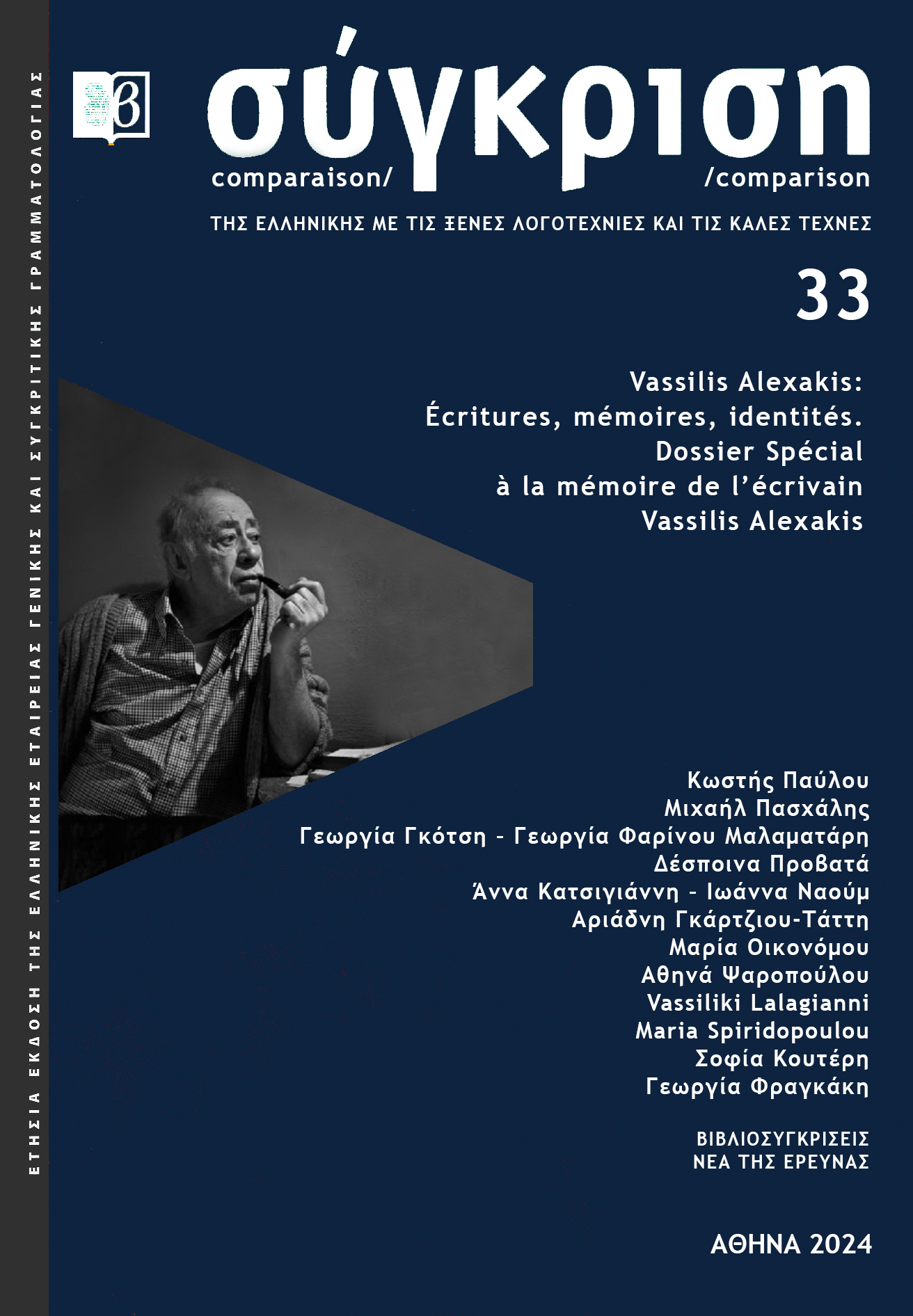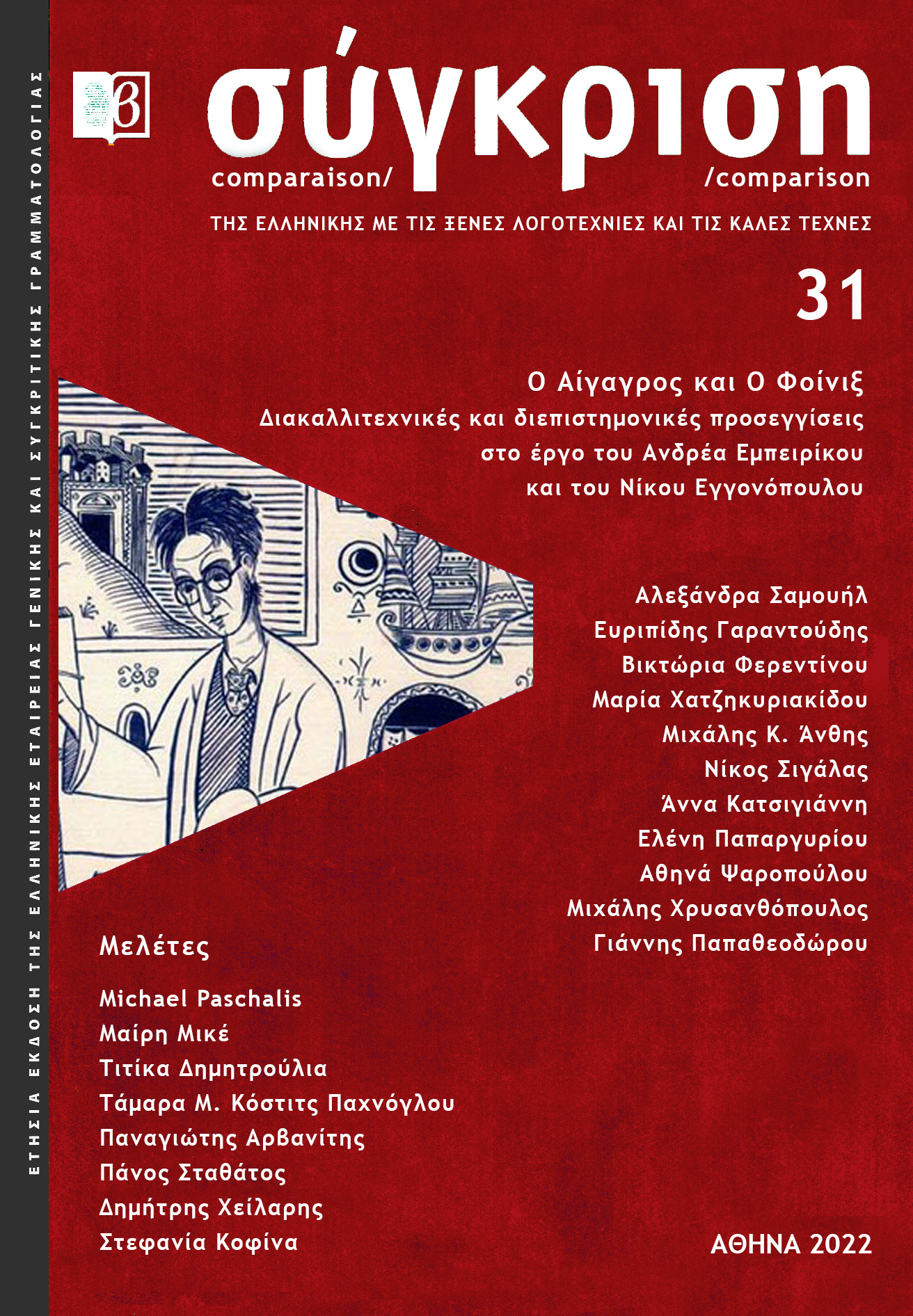Η μπερξονική διάρκεια στην ποίηση του Ανδρέα Εμπειρίκου: Ένα χαρακτηριστικό παράδειγμα από την «Αργώ»
Abstract
The bergsonian concept of “durée” in the poetry of Andreas Empeirikos: An illustrative example from “Argo”
This paper endeavors to illuminate the presence of the bergsonian concept of “durée” within the poetry of Andreas Empeirikos. It seeks to examine an illustrative example of this presence in the form of an “epiphany of the past recaptured” found in his novel “Argo”. “Durée”, considered one of the most profound concepts of bergsonism, encapsulates the idea of fluid and undivided time, wherein the past and present seamlessly interpenetrate through the faculties of memory. Bergson emphasizes that a poet has the capacity to reveal this interpenetration and portray the fluidity inherent to the “real durée”. In “Argo” the enigmatic character Don Pedro undergoes an “epiphany of the past recaptured”. Within this experience two significant events, profoundly relevant to his psyche, interpenetrate: the (present) witnessing of his daughter’s intimacy with her lover and the (past) recollection of the Freudian “primordial scene”. Empeirikos adeptly incorporates the bergsonian concept of “durée” into his literary work, adopting it in a manner akin to Deleuze, even though he wrote “Argo” two decades before the advent of Bergsonism.
Article Details
- How to Cite
-
Ψαροπούλου Α. (2025). Η μπερξονική διάρκεια στην ποίηση του Ανδρέα Εμπειρίκου: Ένα χαρακτηριστικό παράδειγμα από την «Αργώ». Comparison, (33), 289–301. Retrieved from https://ejournals.epublishing.ekt.gr/index.php/sygkrisi/article/view/35638
- Issue
- No. 33 (2024)
- Section
- Articles

This work is licensed under a Creative Commons Attribution-NonCommercial-ShareAlike 4.0 International License.
Authors who publish with this journal agree to the following terms:
- Authors retain copyright and grant the journal right of first publication with the work simultaneously licensed under a Creative Commons Attribution Non-Commercial License that allows others to share the work with an acknowledgement of the work's authorship and initial publication in this journal.
- Authors are able to enter into separate, additional contractual arrangements for the non-exclusive distribution of the journal's published version of the work (e.g. post it to an institutional repository or publish it in a book), with an acknowledgement of its initial publication in this journal.
- Authors are permitted and encouraged to post their work online (preferably in institutional repositories or on their website) prior to and during the submission process, as it can lead to productive exchanges, as well as earlier and greater citation of published work (See The Effect of Open Access).




